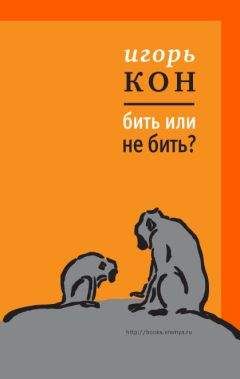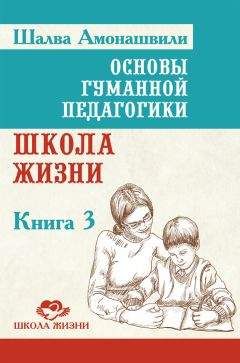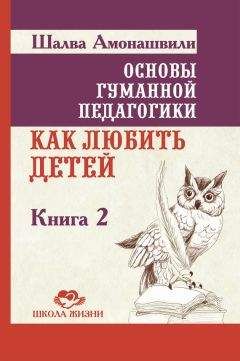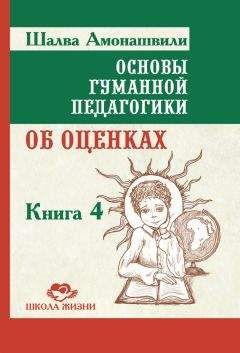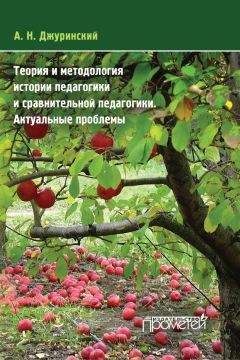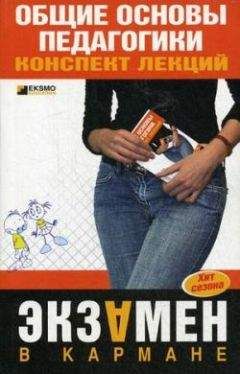Ознакомительная версия.
Gershoff E. T. Corporal punishment by parents and associated child behaviors and experiences: A meta-analytic and theoretical review // Psychological Bulletin. 2002. Vol. 128. P. 539–579.
Gershoff E. T. More harm than good: A summary of scientific research on the intended and unintended effects of corporal punishment on children // Law and Contemporary Problems. 2010. Vol. 73. P. 33–58.
Gershoff E. T., Grogart-Kaylor A., Lansford J. E., Chang L. et al. Parent discipline practices in an international sample: Associations with child behaviors and moderation by perceived normativeness // Child Development. 2010. Vol. 81. Issue 2. P. 487–502.
Gibson I. The English vice. Beating, sex and shame in Victorian England and after. Duckworth, 1978.
Global Initiative to End All Corporal Punishment of Children // http://www.endcorporalpunishment.org.
Goldfrank E. Socialization, Personality, and the Structure of Pueblo Society//American Anthropologist. 1945. Vol. 47. P. 516–539.
Goldman J. D. G., Goldman R. J. Children’s Perceptions of Parents and their Roles: A Cross National Study in Australia, England, North America and Sweden // Sex Roles. 1983. Vol. 9. P. 791–812.
Goodman R. Children of the Japanese State: The Changing Role of Child Protection. Oxford University Press, 2000.
Goodman R. Family and Social Policy in Japan: Anthropological Approaches, Cambridge University Press: Cambridge, 2002.
Grogan-Kaylor A. Corporal punishment and the growth trajectory of children’s antisocial behavior // Child Maltreat. 2005. Vol. 10. № 3. P. 283–292.
Hendry J. Understanding Japanese Society. 3 ed. London: Routledge, 2003.
Holden G. W. Perspectives on the effects of corporal punishment: Comment on Hollowell C. Enforcing performance: Disciplining girls in British co-educational boarding school stories, 1928—58 // International Research in Children's Literature. 2008. Vol. 1. P. 125–138.
Hollowell С. Enforcing performance: Disciplining girls in British coeducational boarding school stories, 1928—58 // International Research in Children’s Literature. 2008. Vol. 1. P. 125–138.
How They Were Taught / P. H. J. H. Gosden (ed.). Oxford: Basil Blackwell, 1969.
Hunt D. Parents and Children in History // Psychology of Family Life in Early Modern France. N.Y.: Basic Books, 1970.
International comparative research on «home education»: survey on children and the family life. Tokyo, Japan Association for Women's Education, 1995.
International Save the Children Alliance on corporal punishment. April 2003.
Ishii-Kuntz М. K., Kato K., Tsuchiya M. Japanese fathers of preschoolers and their involvement in child care // Journal of Marriage and Family. 2004. Vol. 66. P. 779–791.
Japanese fathers become 'Papa Danshi' // CNNGo.com http://www.cnngo.com/tokyo/none/papa-danshi-japanese-fathers-who-being-fathers-289399#ixzz01nwXZBcR. James A., Jencks C., Prout A. Theorizing Childhood. L.: Polity press, 1999.
Kacker L., Varadan S., Kumar P. Study on Child Abuse: India 2007. New Dehli: Ministry of Women and Child Development, 2007.
Kelly C. Children’s World. Growing Up in Russia, 1890–1991. New Haven-L.: Yale UP, 2007.
Kessler R.C., McLaughlin K. A. et al. Childhood adversities and adult psychopathology in the WHO World Mental Health Surveys // The British Journal of Psychiatry. 2010. Vol. 197. P. 378–385.
King N., Butt Т., Green L. Spanking and the corporal punishment of children: the sexual story // International Journal of Children's Rights. 2003. Vol. 11. № 2. P. 199–217.
Kobayashi NTanimura М., Shimauchi Y. Corporal punishment in the schools and homes of Japan, 9th Asian Congress of Pediatrics, Hong Kong, 22–23 March 1997 (http://www.childresearch.net/RESOURCE/PRESEN/1997/KORNER/CORPO.HTM).
Kobayashi-Winata H., Power T. G. Child rearing and compliance: Japanese and American families in Houston // Journal of Cross-Cultural Psychology. 1989. Vol. 20. № 4. P. 333–356.
Krueger R. B. The DSM diagnostic criteria for sexual sadism //Archives of Sexual Behavior. 2010. Vol. 39. P. 325–345, 346–356.
Lansford J. E. The special problem of cultural differences in effects of corporal punishment // Law and Contemporary Problems. 2010. Vol. 73. P. 89—106.
Lansford J. E, Chang L., Dodge K. A., Malone P. S. et al. Cultural normativeness as a moderator of the link between physical discipline and children's adjustment: A comparison of China, India, Italy, Kenya, Philippines, and Thailand // Child Development. 2005. Vol. 76. P. 1234–1246.
Lansford J. E., Criss М. М., Dodge K. A. et al Trajectories of physical discipline: early childhood antecedents and developmental outcomes // Child Dev. 2009. Vol. 80. № 5. P. 1385–1402.
Lansford J. E., Deater-Deckard K., Dodge K. A., Bates J. E., Petit G. S. Ethnic differences in the link between physical discipline and later adolescent externalizing behaviors // Journal of Child Psychology and Psychiatry. 2004. Vol. 45. P. 801–812.
Lansford J. E., Dodge K. A. Cultural norms for adult corporal punishment of children and societal rates of endorsement and use of violence corporal punishment and societal violence // Parenting: Science and Practice. 2008. Vol. 8. № 3. P. 1—24.
Larzelere R. E. Child outcomes of nonabusive and customary physical punishment by parents: An updated literature review // Clinical Child and Family Psychology Review. 2000. Vol. 3. № 4. P. 199–221.
Larzelere R. E., Baumrind D. Are spanking injunctions scientifically supported? // Law and Contemporary Problems. 2010. Vol. 73. P. 57–88.
Larzelere R. E., Cox R. B. Jr., Smith G. L. Do nonphysical punishments reduce antisocial behavior more than spanking? A comparison using the strongest previous causal evidence against spanking // BMC Pediatrics. 2010. 10:10 (http://www.biomedcentral.com/1471-2431/10/10).
Larzelere R. E., Kuhn B. R. Comparing child outcomes of physical punishment and alternative disciplinary tactics: a meta-analysis // Clinical Child and Family Psychology Review. 2005. Vol. 8. № 1. P. 1—37.
Lau J. Т., Kim J. H., TsuiH. Y., Cheung A., LauMYu A. The relationship between physical maltreatment and substance use among adolescents: a survey of 95,788 adolescents in Hong Kong // Journal of Adolescent Health. 2005. Vol. 37. P. 110–119.
Les Frangais et la fessee 2009 // http://www.tns-sofres.com/points-de-vue/024C9158AD2245C4A02E32CD19282A99.aspx.
Levinson D. Family Violence in Cross-cultural perspective. Newbury Park, CA: Sage, 1989.
Loseke D. R. Reply to Murray A. Straus: Readings on “Discipline and Deviance”// Social Problems. 1999. Vol. 38. № 2. P. 162–166.
Lysova A. V. Corporal Punishment and Depressive Symptoms: The Moderating Effect of Positive Parenting in a Multi-National Perspective and Russia. Presented at the World Society of Victimology's 13th International Symposium on Victimology, on August 23–28, 2009 on Tokiwa University Campus in Mito, Japan.
Mathurin M. N., Gielen U. P., Lancaster J. Corporal punishment and personality traits in the children of St. Croix, United States Virgin Islands // Cross-Cultural Research. 2006. Vol. 40. № 3. P. 306–324.
MacMillan H. L., Boyle М. H., Wong M. Y., Duku E. K., Fleming J. E., Walsh C. A. Slapping and spanking in childhood and its association with lifetime prevalence of psychiatric disorders in a general population sample // Canadian Medical Association Journal. 1999. Vol. 161. № 7. P. 805–809 (PMC: 1230651. http://www.cmaj.ca/cgi/pmidlookup? view=long&pmid=10530296).
Mahoney A., Donnelly W. O., Lewis Т., Maynard C. Mother and father self-reports of corporal punishment and severe physical aggression toward clinic-referred youth // J Clin Child Psychol. 2000. Vol. 29. № 2. P. 266–281.
McLoyd V. C., Smith J. Physical discipline and behavior problems in African American, European American, and Latino children: Emotional support as a moderator // Journal of Marriage and the Family. 2002. Vol. 64. Issue 1. P. 40–53.
Meadows S. O., McLanahart S. SBrooks-Gunrt J. Parental depression and anxiety and early childhood behavior problems across family types // J Marriage Fam. 2007. Vol. 69. № 5. P. 1162–1177.
Middleton J. Thomas Hopley and Mid-Victorian attitudes to corporal punishment // History of Education. 2005. Vol. 34. № 6. P. 599–615.
Miethe, Terance D., Hong Lu. Punishment: A Comparative Historical Perspective. Cambridge University Press, 2005.
Miller A. Taibatsu: “corporal punishment” in Japanese socio-cultural context // Japan Forum. 2009. Vol. 21. № 2. P. 233–254.
Moser C., Levit E. An exploratory-descriptive study of sadomasochistically oriented sample // Journal of Sex Research. 1987. Vol. 23. № 3. P. 322–337.
MusilA. The Manners and Customs of Rwala Bedouins. N. Y., 1928.
Nevill R. Floreat Etona: Anecdotes and Memories of Eton College. London: Macmillan, 1911.
Noll J. G. Does childhood sexual abuse set in motion a cycle of violence against women? // J Interpers Viol. 2005. № 4. P. 455–462.
Norwood C. The English Tradition of Education. L.: John Murray, 1929.
Paolucci E. O., Violato C. A meta-analysis of the published research on the affective, cognitive and behavioral effects of corporal punishment // Journal of Psychology. 2004. Vol. 138. P. 197–221.
Petersen L.R., Lee G. R.y Ellis G. J. Social structure, socialization values, and disciplinary techniques: A cross-cultural analysis // Journal of Marriage and the Family. 1982. Vol. 44. № 1. P. 131–142.
Plante R. F. Sexual spanking, the self, and the construction of deviance // Journal of Homosexuality. 2006. Vol. 2/3. P. 59–79.
Pollard D. Banning child corporal punishment // Tulane Law Review. 2003. Vol. 77. P. 575–657.
Pour ou contre les fessees? l’enquete de l’Union des Families en Europe, 2007 // http://www.uniondesfamilles.org/enquete-fessees.htm.
Quortrup J. Childhood as a Social Phenomenon // An Introduction to a Series of National Reports: Eurosocial Reports. Vol. 36.Vienna, 1991.
Raven S. The Old School: A Study in the Oddities of the English Public School System. L.: Hamish Hamilton, 1986.
Richters J., de Visser R. O., Rissel С. E., Grulich A. E., Smith A. M. A. Demographic and psychosocial features of participants in bondage and discipline, “sadomasochism” or dominance and submission (BDSM): Data from a national survey // Journal of Sexual Medicine. 2008. Vol. 5. P. 1660–1668.
Ripoll-Nilnez К JRohner R. P. Corporal punishment in cross-cultural perspective: Directions for a research agenda // Cross-Cultural Research. 2006. Vol. 40. P. 220–249.
Rohner R. P. They Love Me, They Love Me Not: A Worldwide Study of the Effects of Parental Acceptance and Rejection. New Haven: HRAF, 1975.
Rohner R. P. The Warmth Dimension. Beverly Hills, CA: Sage, 1986.
Rohner R. P. Physical Punishment Questionnaire. 2001 (Available from Rohner Research Publications, 255 Codfish Falls Road, Storrs, CT 06268)
Rohner R. P. Glossary of significant concepts in parental acceptance rejection theory (PARTheory). Retrieved January 16, 2005 // www.cspar.uconn.edu.
Rohner R. P. Preface // Cross-Cultural Research. 2006. Vol. 40. No. 3. P. 215–219.
Rooksby R. A. C. Swinburne: A Poet’s Life. London: Scolar Press, 1997.
Sandnabba N., Santtila P., Nordling N. Sexual behavior and social adaptation among sadomasochistically oriented males // Journal of Sex Research. Vol. 36. P. 273–282.
Schlack R., Holling H. GewalterfahrungenvonKindernund Jugendlichen im subjektiven Selbstbericht. Erste Ergebnisse aus dem Kinder– und Jugendgesundheitssurvey (KiGGS). Bundesgesundheitsblatt Gesundheitsforschung Gesundheitsschutz. 2007. B. 50. H. 5/6. S. 819–826.
Schoebi D., Perrez M. Bestrafungsverhalten von Erziehungsberechtigten in der Schweiz. Eine vergleichende Analyse des Bestrafungsverhaltens von Erziehungsberechtigten 1990 und 2004. (Forschungsbericht z Hd. Bundesamt fuer Sozialversicherung). Fribourg: Department of Psychology. 2004 // www.rwi.uzh.ch/elt-lst-buechler/famr/kindesschutz/de/pdf/pdf4.pdf.
Schoolland K. Shogun’s Ghost: The Dark Side of Japanese Education. Greenwood Press, 1990.
Schrader A. M. Languages of the Lash: Corporal Punishment and Identity in Imperial Russia. Illinois Univ.Press, 2002.
Schumann D. Legislation and liberalization: The debate about corporal punishment in schools in postwar West Germany, 1945–1975 // German History. 2007. Vol. 25. № 2. P. 192–218.
Shimoda T. Representations of parenting and gender roles in the Shoshika era: Comparisons of Japanese and English-language parenting magazines // Electronic journal of contemporary japanese studies. 2008. Article 1 (http://www.japanesestudies.org.uk/articles/2008/Shimoda.html).
Shwalb D. W., Nakazawa J., Yamamoto T., Hyun J.-H. Fathering in Japan, China, and Korea: Changing contexts, images, and roles // The Role of the Father in Child Development. 5th Edition / Michael E. Lamb, ed. N. Y.: Wiley, 2010. P. 341–388.
Simons D. A., Wurtele S. K. Relationships between parents’ use of corporal punishment and their children's endorsement of spanking and hitting other children // Child Abuse & Neglect. 2010. Vol. 34. Issue 9. P. 639–646.
Slade E. PWissow L. S. Spanking in early childhood and later behavior problems: A prospective study of infants and young toddlers // Pediatrics. 2004. Vol. 113. P. 1321–1330.
Smith C., Thornberry T. P. The relationship between childhood maltreatment and adolescent involvement in delinquency // Criminology. 1995. Vol. 33. P. 451–481.
Sommerville C. J. The Rise and Fall of Childhood. Beverly Hills, Calif.: Sage Publication, 1982.
Steinberg S., Kruckman L., Steinberg S. Reinventing fatherhood in Japan and Canada // Social Science and Medicine. 2000. Vol. 50. № 9. P. 1257–1272.
Stoller R. J. Pain and Passion: A Psychoanalyst Explores the World of S & M. NY: Plenum Press, 1991.
Stone L. The Family, Sex and Marriage in England. N. Y.: Harper, 1979.
Straus M. A. Spanking and the making of a violent society // Pediatrics. 1996. Vol. 98 (4S). P. 837–842.
Ознакомительная версия.
